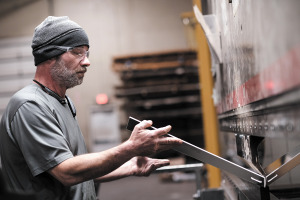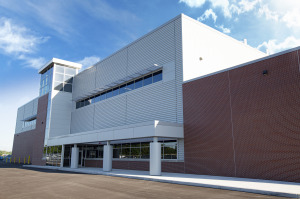
Cummins investing in hydrogen power, although path to profitability uncertain
The Columbus-based manufacturer is bullish on hydrogen’s possibilities to power everything from buses, trains and trucks to industrial equipment.

The Columbus-based manufacturer is bullish on hydrogen’s possibilities to power everything from buses, trains and trucks to industrial equipment.
The strength in October came primarily from the volatile category of defense orders, with demand for military aircraft surging by 79.1%.
Cook has partnered with Goodwill of Central & Southern Indiana and several other community organizations to build the manufacturing facility, which is expected to employ 100 employees on the northeast side of Indianapolis.
It was a rebound after a downturn in September, but production still remains below pre-pandemic levels, the Federal Reserve reported Tuesday.
Eaton Corp. has notified state officials that it intends to begin layoffs at the Auburn factory in February.
Jeff Korzenik, chief investment strategist at Fifth Third Bank, said Thursday that homeowners and businesses have become more interested in locating in suburbs and mid-sized cities—a trend that could benefit the Indianapolis area.
The Institute for Supply Management said Monday that its closely watched barometer of manufacturing health rose by 3.9 percentage-points, to a reading of 59.3% last month, up from 55.4% in September.

Fueled by the strong performance of Klipsch and the company’s other premium audio lines—all of which are overseen from Indianapolis by longtime Klipsch CEO Paul Jacobs—Voxx shares have risen more than 200% this year.
The Columbus-based engine maker’s third-quarter revenue and net income rebounded better from pandemic-related lags than analysts had expected.

Until a few years ago, Indianapolis-based IMH Products was stuck in neutral—turning a profit, yes, but doing so with outdated equipment and without an emphasis on growth.
A startup that’s planning to launch a $60 million drug-manufacturing plant sees big growth in contract manufacturing.
Much of last month’s growth came from clothing stores, where sales rose 11%. At auto dealerships and parts shops, sales were up 3.6%.
The Joint Hypersonics Transition Office Systems Engineering Field Activity hub will be located at Naval Surface Warfare Center in Crane. A team of 30 engineers and program managers will be based there to support the program.
IMH said it plans to move Mainstay’s equipment and its 38 employees to its Indianapolis facilities by year’s end. Both companies are in the metal fabrication business.

While the pandemic has devastated Indiana’s tourism and hospitality industries, the picture is decidedly mixed for manufacturing—which constitutes more than a quarter of the state’s gross domestic product.
Industrial production remains 7.3% below where it was in February, right before economic activity seized up in the pandemic.
Milwaukee Tool, which will open a 150,000-square-foot facility on Southtech Drive, has been on a growth tear, with employment increasing from 1,000 to 5,000 over the last decade.
Founded in 2005 by Charles Haywood, Mansfield-King develops and manufactures products that are sold under its customers’ brand names. The east-side company has 154 employees.
The July increase was led by a strong advance in the volatile transportation sector, which was up 35.6%.

The new center, on the manufacturer’s Speedway campus, can simulate extreme heat and cold as well as a variety of altitudes and road conditions.